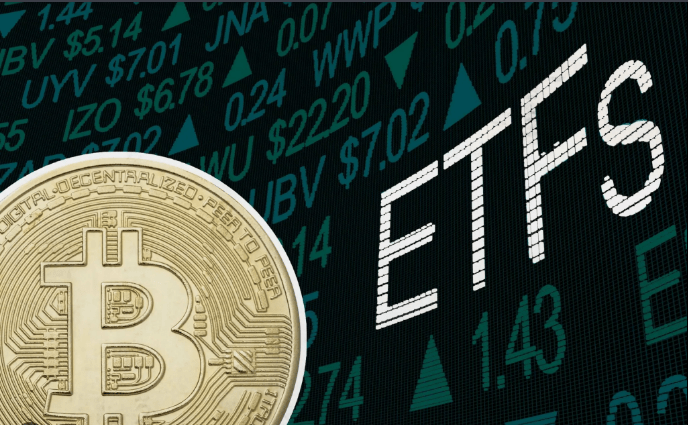The recent surge in the popularity of spot Bitcoin exchange-traded funds (ETFs) in the United States has experienced a temporary pause. Despite significant interest, recent data indicates a shift in investor sentiment, which has led to notable outflows.
Market Reversal and Investor Sentiment
On a recent Tuesday, spot Bitcoin ETFs witnessed a reversal with net outflows amounting to $79.01 million. This came after an impressive seven-day streak of positive inflows, highlighting a sudden shift in market dynamics. According to Farside Investors, an expert in ETF flow analysis, this change reflects the evolving sentiment among investors.
A Brief Obstacle in the Bitcoin ETF Market
The $79 million outflow marks a significant change in sentiment among investors who had previously shown strong interest in Bitcoin ETFs. The market had attracted approximately $1 billion in inflows in just two days the previous week, indicating robust demand for these financial products. The primary cause of this negative shift was a substantial $134.7 million outflow from Ark and 21Shared’s ARKB.
Despite this setback, BlackRock’s IBIT, the best-performing Bitcoin ETF by net assets, managed to draw $43 million. Fidelity’s FBTC and VanEck’s HODL contributed with inflows of $8.8 million and $3.8 million respectively. However, the remaining eight funds, including Grayscale’s GBTC, saw no new inflows on that day.
Overall, Bitcoin ETFs have attracted more than $21 billion to date. This substantial figure underscores the growing acceptance of Bitcoin as a new asset class, with expectations of increased participation from hedge funds.
Institutional Interest in Bitcoin ETFs
Interest in US-traded spot Bitcoin ETFs from institutional investors remains significant, with 20% of the market currently owned by such entities as of October 22. This high level of institutional ownership indicates a strong foundation for future growth and adoption.
Institutional Demand Remains Robust
Despite the recent fluctuations in ETF flows, the overall trend indicates a continued push towards institutional Bitcoin adoption. Major companies such as Goldman Sachs and Millennium Management have made substantial investments in these funds, reflecting their confidence in Bitcoin’s potential.
The approval of options trading on 11 Bitcoin ETFs by the SEC marks a pivotal development, enabling investors to better manage their Bitcoin exposure. This could potentially stabilize the market and reduce volatility over time, drawing more institutional money into the sector and enhancing Bitcoin’s credibility as an investment tool.
Future Outlook for Bitcoin ETFs
While the recent outflows may raise concerns, many analysts remain optimistic about the future of Bitcoin ETFs. The SEC’s approval of options trading is seen as a significant milestone that could improve market efficiency and liquidity.
A Positive Outlook Moving Forward
The entry of more institutional players into the space is likely to alter market dynamics positively. The current pause in inflows may be temporary, as investors adjust their strategies in response to changing market conditions. The long-term outlook for spot Bitcoin ETFs appears promising, especially with the increasing adoption from institutional investors and Bitcoin trading at or near three-month highs.
Although recent outflows from spot Bitcoin ETFs may suggest a temporary setback, the overarching trend of heightened institutional interest and regulatory support indicates that this asset class is poised for sustained growth. Investors will be closely observing the rapid evolution of this market for any new developments.
Conclusion
The spot Bitcoin ETF market is at a pivotal juncture, with recent developments indicating both challenges and opportunities. As institutional interest continues to grow and regulatory frameworks evolve, the future of Bitcoin ETFs looks promising. Investors should remain vigilant, monitoring market trends and adapting their strategies to capitalize on emerging opportunities in this dynamic financial landscape.











